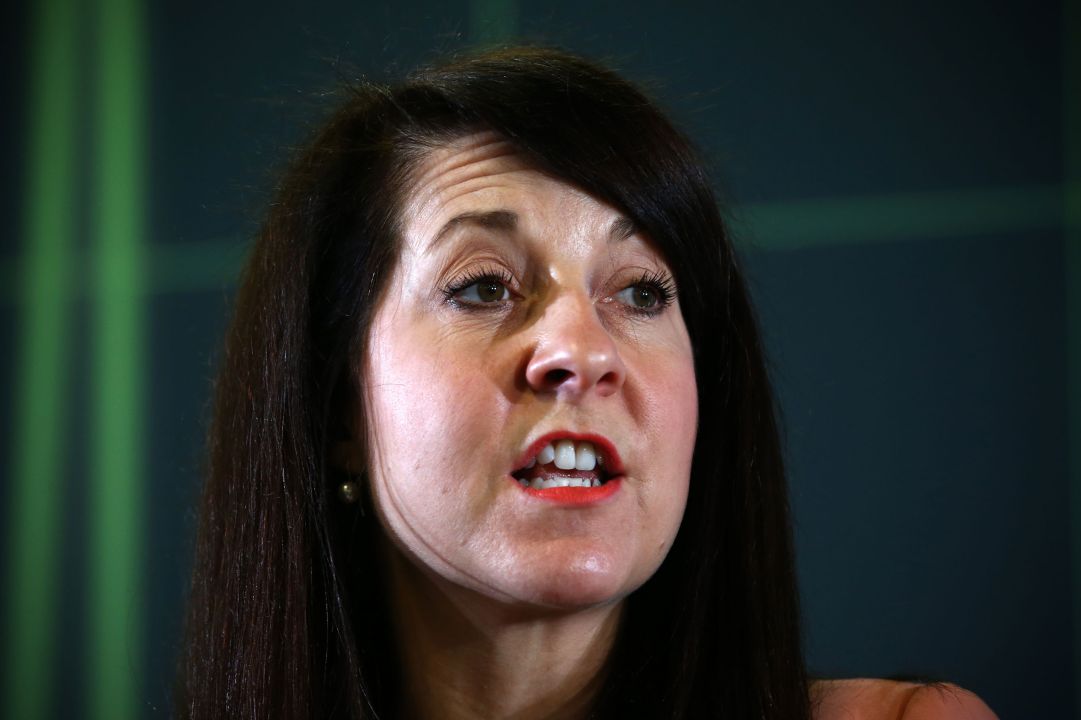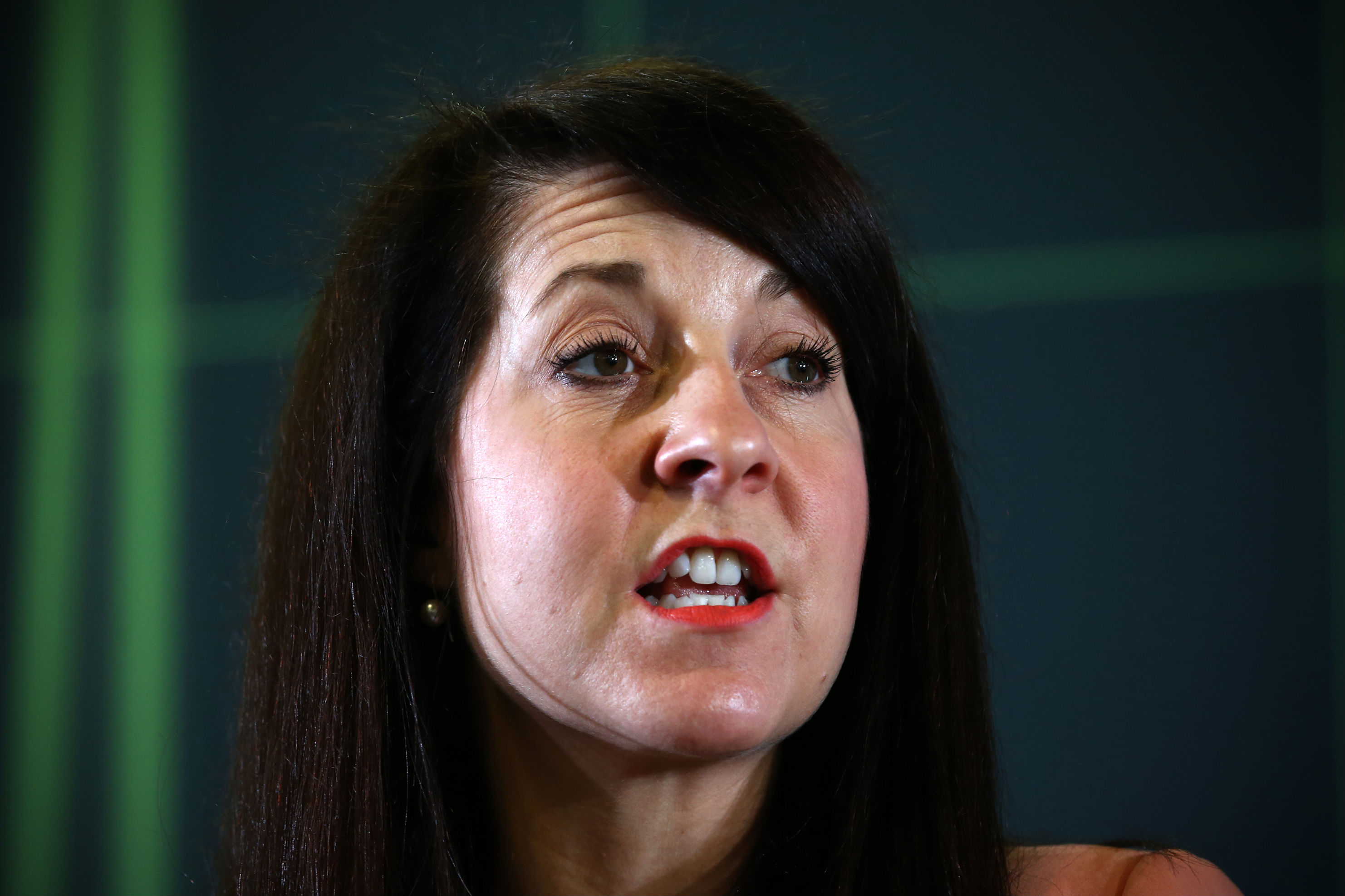Liz Kendall is the great unknown Labour leadership candidate. She is the only one who hasn’t been in government or Shadow Cabinet, and as I blogged earlier, she needs to show that she has got qualities that make up for this lack of experience. She made a pretty good start on this at the press gallery lunch today, as the first candidate to speak to, and take questions from, journalists. Yvette Cooper and Andy Burnham will presumably agree to the same event at some stage – and they now have a hard act to follow.
In her opening speech, Kendall painted a rather brutal picture of where her party had ended up and why it had lost. She said:
‘This defeat was epic. We lost by a magnitude few predicted or imagined. The election demands a new era for the Labour party. The question is whether we’ll grasp it. If we don’t face up to what needs to be done to win back Ukip, Tory and SNP voters in England, Scotland and Wales, we will not win again. And I think that the reasons why we lost aren’t complicated. They’re simple. We decided that the British public had shifted to the left because we wished it to be so. We rarely said what was good about our last government and never dealt with the central economic case of our opponents about where we really fell short. And we didn’t have answers to the big questions people were really asking about their future and that of our country, whether that was on jobs, immigration, or the public finances.’
She then painted a more upbeat, internationalist stance for a Labour party under her leadership. She made clear that she would not be on the side of the producers in the public services debate:
‘Real bravery is about displaying courage in every direction, including our own. So when it comes to the public services, I am firmly on the side of the public: the clue is in the name. Services should revolve around the people who use them, not the other way round, and be fit for the future, not stuck in the past.’
One of her most striking lines was a pledge – made only by Ukip at the last election – to meet the Nato target of maintaining defence spending at 2 per cent of GDP. Kendall said:
‘We need a foreign and security policy that defines Britain’s place in Europe and the rest of the world. We face a global struggle against Islamic extremism, a resurgent Russia, the threat of climate change, and an economy that’s more connected and independent than ever before. Meeting these challenges demands a Britain that is fully and passionately engaged in Europe, and beyond.
Yet under this government, we have seen a quiet diminishing of Britain’s role in the world, which we did too little to challenge because we have been paralysed by the past. Under my leadership, Labour will no longer stand by while the Prime Minister weakens our country and allows the world to become less secure. That means insisting that the UK maintains our basic Nato commitment to continue spending 2 per cent on defence. As Leader of the Opposition, I will hold David Cameron to account for Britain’s promise to allies, and I’ll oppose him if he breaks it and as Prime Minister, I will restore our position as a nation that protects our citizens and advances our national interest by taking our international responsibilities seriously once more.’
But this point proved to be one of her weaknesses in her question-and-answer session later. She failed to provide a decent answer when asked how she would fund that defence spending pledge, simply complaining that the Tories hadn’t funded their own commitments. Her poor answer on this was a reminder that Kendall is still inexperienced, as veteran politicians would be quite used to producing a deflective answer on this.
Another weak point was Kendall’s prescription for dealing with Ukip, which sounded nice until you thought about what she’d actually said, whereupon you realised she had produced a solution no more weighty than whipped cream. It focused on giving people hope for their futures, which is quite an easy and nebulous thing to promise.
Kendall did say she wouldn’t obsess about school structures and that Labour would support any school that was performing well, which has led some to believe that she supports the government’s free schools programme. I’m not so sure that her quotes back that up. This is what she said when asked whether she would allow new schools to be set up in areas where there is a surplus of places:
‘If a school is set up and it’s delivering great results, we’ll back it… Yes, I don’t think the issue, if I look in my patch, what makes great schools is great heads, great teachers and parents who are much more engaged and involved and who have got broader links in the community, including with businesses. We’re trying to inspire kids, to understand that there is a world of work out there with jobs that they could try and achieve, that’s what I want to be focused on.’
Other leadership contenders may choose to make their stance on free schools clearer: this sounds more as though Kendall’s Labour would support those existing free schools.
Overall, this was a very confident, passionate pitch for the leadership. Kendall appeared someone confident in her grasp of politics and policy, and also comfortable in her own skin. So many politicians who appear at these events appear worried that the audience won’t like them, or that they must appear to be someone they aren’t. She must be aware of her weaknesses as a candidate, but Kendall doesn’t seem ill at ease with herself, and that is something that should benefit her as she starts pitching to her party membership for votes.








Comments